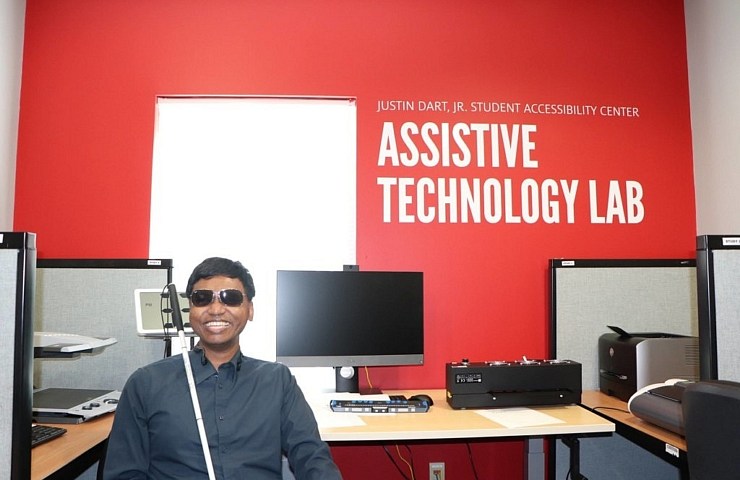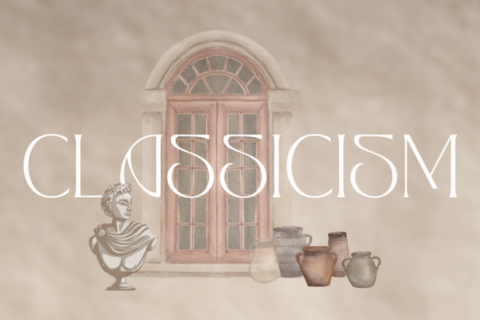When Suva Bernard Gomes first enrolled at the University of Houston, there was no such thing as an assistive technology coordinator at the Dart Center. And he certainly did not come into college with the field on his mind. As a matter of fact, he majored in psychology. However, he relied on assistive technology while earning his degree every step of the way. There was not a day that he didn’t use it.
Gomes is legally blind due to a rare, progressive dystrophy. But he never let that get in the way of his education or career path. It was never going to be an easy one. He immigrated to the United States from Bangladesh with his family in 2008. Gomes needed a level of education, technology and care that was simply not widely available in his home country. So his parents made the executive decision to move to the United States. It wasn’t the only reason, but it certainly was a significant factor.
Strides though education
Growing up, Gomes depended on different forms of assistive technologies to succeed in school. In college, the Dart center was the only place that had the technology he needed to work and learn. The rest of the campus counted on students with disabilities to lug around their own equipment. One of the main things Gomes used was a CCTV, a device used to magnify his papers to 400 times their size. The center allowed him access to the devices he needed to succeed. Additionally, it allowed him extra accommodations during his exams. As a student, he always felt that the center was a great help to him.
“For me, this was the landmark of the university,” Gomes said. “I learned the whole campus from this location. Even though the technologies weren’t as good as they are today, they were still good.”
Upon graduation, Gomes went on to the Chris Cole School for the Blind. He studied daily living skills, Braille, technology skills and more there. Armed with this new training, he pursued certifications in assistive technology, not only to be an expert in their use himself but to be able to train other workers of the Texas Workforce Commissioner in their uses. His intention was to apply for a state contract with the Texas Workforce Commissioner and dedicate his life to the study and training of assistive technologies.
A dream career
However, this all changed when he got a call from the Dart Center. They were in the process of creating an assistant technology coordinator position and invited Gomes to apply.
“I interviewed just like anybody, and then they were also interviewing others,” Games said. “And I somehow became a full-time staff member!”
Once hired, he goes to work collecting equipment that would make students’ lives better and homing them in a lab at the Dart center. One could argue that he better than anyone would know where the Dart center shines and where it could be improved, seeing as he’d used it during his undergrad. Out of the current staff members at the Dart center, Gomes and his access coordinator are the only two people that remember what the center was like when he was a student.
“We both know how the center was,” Gomes said. “It’s given me a perspective from the student side to the staff side. But now also having the ability to train staff at the center on the different technologies, the different types of alternative formats.”
When asked what advice he would give to a student with a disability wary of choosing a career that they are passionate about due to fears of their disability getting in the way, Gomes said that thought shouldn’t even be a priority.
“When it comes to choosing a field, disabilities should not have anything to do with the job field. It’s not going to be great and easy. It’s going to be harsh, just like for everybody else. But just keep on doing what you like, and you are going to come across that position that you fall in love with.”
Never give up
Suva Gomes has found fulfillment, community and stimulation in a field he loves because of his specialized skill set and passion. He is excited to go to work because he knows his efforts make a huge difference to a population he holds near and dear to his heart. The best part of all? It’s fun!
“I don’t feel like I’m working. I feel like I play during my work with different technology. And it also helps a lot of students at the same time. It also helps out the university and what accessibility makes it more accessible, and they pay me for it.”





Recent Comments